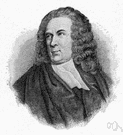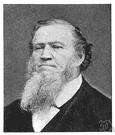young
(yŭng)adj. young·er, young·est
1. Being in an early period of life, development, or growth.
2. Newly begun or formed; not advanced: a young biotech company.
3. Relating to, typical of, or suggestive of youth or early life: He is young for his age.
4. Lacking experience; immature: a young hand at plowing.
5. Being the junior of two people having the same name.
6. Geology Being of an early stage in a geologic cycle. Used of bodies of water and land formations.
n.
Idiom: 1. Young persons considered as a group; youth: entertainment for the young.
2. Offspring; brood: a lioness with her young.
with young
Pregnant. Used of an animal.
young′ness n.
Synonyms: young, youthful, adolescent, immature, juvenile, childish, puerile, infantile
These adjectives relate to an early stage of growth or development and to its accompanying characteristics. Young is the most general, applying to various periods of life, generally before middle age, as well as to inanimate entities: a young child; a young couple; a young galaxy.
It can suggest a youthful attitude or outlook regardless of chronological age: young at heart.
Youthful suggests the positive characteristics, such as enthusiasm, freshness, or energy, that are traditionally associated with youth: approached the task with youthful ardor.
Adolescent connotes the physical and especially mental or emotional characteristics of those between childhood and maturity; it is generally not disparaging except when used of an adult: adolescent insecurity; an adolescent outburst from the trial lawyer.
Immature is more clearly judgmental, implying that someone falls short of an expected level of mental or emotional development for his or her age: an emotionally immature adult.
Juvenile suggests the immaturity usually associated with adolescents, but it can convey an attitude of tolerance as well as criticism: the juvenile pranks of the conventioneers.
Childish is similar to juvenile but with a younger frame of reference, often suggesting selfishness, stubbornness, or lack of restraint: a committee member with a childish need to have the last word.
However, it can also suggest such positive qualities of children as innocence and wholeheartedness: took childish delight in tending his garden.
Puerile and infantile are used derogatorily to suggest extreme immaturity, especially with regard to social manners: a puerile joke; an infantile boast.
These adjectives relate to an early stage of growth or development and to its accompanying characteristics. Young is the most general, applying to various periods of life, generally before middle age, as well as to inanimate entities: a young child; a young couple; a young galaxy.
It can suggest a youthful attitude or outlook regardless of chronological age: young at heart.
Youthful suggests the positive characteristics, such as enthusiasm, freshness, or energy, that are traditionally associated with youth: approached the task with youthful ardor.
Adolescent connotes the physical and especially mental or emotional characteristics of those between childhood and maturity; it is generally not disparaging except when used of an adult: adolescent insecurity; an adolescent outburst from the trial lawyer.
Immature is more clearly judgmental, implying that someone falls short of an expected level of mental or emotional development for his or her age: an emotionally immature adult.
Juvenile suggests the immaturity usually associated with adolescents, but it can convey an attitude of tolerance as well as criticism: the juvenile pranks of the conventioneers.
Childish is similar to juvenile but with a younger frame of reference, often suggesting selfishness, stubbornness, or lack of restraint: a committee member with a childish need to have the last word.
However, it can also suggest such positive qualities of children as innocence and wholeheartedness: took childish delight in tending his garden.
Puerile and infantile are used derogatorily to suggest extreme immaturity, especially with regard to social manners: a puerile joke; an infantile boast.
American Heritage® Dictionary of the English Language, Fifth Edition. Copyright © 2016 by Houghton Mifflin Harcourt Publishing Company. Published by Houghton Mifflin Harcourt Publishing Company. All rights reserved.
young
(jʌŋ)adj, younger (ˈjʌŋɡə) or youngest (ˈjʌŋɡɪst)
1.
a. having lived, existed, or been made or known for a relatively short time: a young man; a young movement; a young country.
b. (as collective noun; preceded by the): the young.
2. youthful or having qualities associated with youth; vigorous or lively: she's very young for her age.
3. of or relating to youth: in my young days.
4. having been established or introduced for a relatively short time: a young member.
5. in an early stage of progress or development; not far advanced: the day was young.
6. (Physical Geography) geography
a. (of mountains) formed in the Alpine orogeny and still usually rugged in outline
b. another term for youthful4
7. (Government, Politics & Diplomacy) (often capital) of or relating to a rejuvenated group or movement or one claiming to represent the younger members of the population, esp one adhering to a political ideology: Young England; Young Socialists.
n
8. (Biology) (functioning as plural) offspring, esp young animals: a rabbit with her young.
9. (Biology) with young (of animals) pregnant
[Old English geong; related to Old Saxon, Old High German iung, Old Norse ungr, Latin iuvenis, Sanskrit yuvan]
ˈyoungish adj
Young
(jʌŋ)n
1. (Biography) Brigham (ˈbrɪɡəm). 1801–77, US Mormon leader, who led the Mormon migration to Utah and founded Salt Lake City (1847)
2. (Biography) Edward. 1683–1765, English poet and dramatist, noted for his Night Thoughts on Life, Death, and Immortality (1742–45)
3. (Biography) Lester. 1909–59, US saxophonist and clarinettist. He was a leading early exponent of the tenor saxophone in jazz
4. (Biography) Neil (Percival). born 1945, Canadian rock guitarist, singer, and songwriter. His albums include Harvest (1972), Rust Never Sleeps (1979), Ragged Glory (1990), and Prairie Wind (2005)
5. (Biography) Thomas. 1773–1829, English physicist, physician, and Egyptologist. He helped to establish the wave theory of light by his experiments on optical interference and assisted in the decipherment of the Rosetta Stone
Collins English Dictionary – Complete and Unabridged, 12th Edition 2014 © HarperCollins Publishers 1991, 1994, 1998, 2000, 2003, 2006, 2007, 2009, 2011, 2014
young
(yʌŋ)adj. young•er (ˈyʌŋ gər)
young•est (ˈyʌŋ gɪst)
n. adj.
1. being in the first or early stage of life or growth.
2. having the appearance, vigor, or other qualities of youth.
3. of or pertaining to youth.
4. not far advanced in years or experience in comparison with others.
5. junior: the young Mr. Smith.
6. being in an early stage, as of existence, development, or maturity: a young wine.
7. representing or advocating recent or progressive tendencies, policies, or the like.
n. 8. young persons collectively.
9. young offspring: a mother hen protecting her young.
Idioms: with young, (of an animal) pregnant.
[before 900; Middle English yong(e), Old English geong, c. Old Frisian, Old Saxon, Old High German jung, Old Norse ungr, Gothic juggs; akin to Latin juvenis]
young′ish, adj.
Young
(yʌŋ)n.
1. Brigham, 1801–77, U.S. leader of the Church of Jesus Christ of Latter-day Saints.
2. Edward, 1683–1765, English poet.
3. Marguerite (Vivian), born 1909, U.S. novelist and poet.
4. Thomas, 1773–1829, English physician, physicist, and Egyptologist.
5. Whitney M., Jr., 1921–71, U.S. social reformer and educator.
Random House Kernerman Webster's College Dictionary, © 2010 K Dictionaries Ltd. Copyright 2005, 1997, 1991 by Random House, Inc. All rights reserved.
ThesaurusAntonymsRelated WordsSynonymsLegend:
| Noun | 1. | young - any immature animal animal, animate being, beast, creature, fauna, brute - a living organism characterized by voluntary movement hatchling - any recently hatched animal (especially birds) orphan - a young animal without a mother young mammal - any immature mammal young bird - a bird that is still young spat - a young oyster or other bivalve young fish - a fish that is young |
| 2. |  Young - United States film and television actress (1913-2000) Young - United States film and television actress (1913-2000) | |
| 3. | Young - United States civil rights leader (1921-1971) | |
| 4. | Young - British physicist and Egyptologist; he revived the wave theory of light and proposed a three-component theory of color vision; he also played an important role in deciphering the hieroglyphics on the Rosetta Stone (1773-1829) | |
| 5. | Young - United States jazz tenor saxophonist (1909-1959) | |
| 6. |  Young - English poet (1683-1765) Young - English poet (1683-1765) | |
| 7. | Young - United States baseball player and famous pitcher (1867-1955) | |
| 8. |  Young - United States religious leader of the Mormon Church after the assassination of Joseph Smith; he led the Mormon exodus from Illinois to Salt Lake City, Utah (1801-1877) Young - United States religious leader of the Mormon Church after the assassination of Joseph Smith; he led the Mormon exodus from Illinois to Salt Lake City, Utah (1801-1877) | |
| 9. |  young - young people collectively; "rock music appeals to the young"; "youth everywhere rises in revolt" young - young people collectively; "rock music appeals to the young"; "youth everywhere rises in revolt" | |
| Adj. | 1. | young - (used of living things especially persons) in an early period of life or development or growth; "young people" animate thing, living thing - a living (or once living) entity immature - not yet mature new - not of long duration; having just (or relatively recently) come into being or been made or acquired or discovered; "a new law"; "new cars"; "a new comet"; "a new friend"; "a new year"; "the New World" junior - younger; lower in rank; shorter in length of tenure or service old - (used especially of persons) having lived for a relatively long time or attained a specific age; "his mother is very old"; "a ripe old age"; "how old are you?" |
| 2. | young - (of crops) harvested at an early stage of development; before complete maturity; "new potatoes"; "young corn" early - being or occurring at an early stage of development; "in an early stage"; "early forms of life"; "early man"; "an early computer" | |
| 3. | young - suggestive of youth; vigorous and fresh; "he is young for his age" | |
| 4. | young - being in its early stage; "a young industry"; "the day is still young" new - not of long duration; having just (or relatively recently) come into being or been made or acquired or discovered; "a new law"; "new cars"; "a new comet"; "a new friend"; "a new year"; "the New World" | |
| 5. | young - not tried or tested by experience; "unseasoned artillery volunteers"; "still untested in battle"; "an illustrator untried in mural painting"; "a young hand at plowing" inexperienced, inexperient - lacking practical experience or training |
Based on WordNet 3.0, Farlex clipart collection. © 2003-2012 Princeton University, Farlex Inc.
young
adjective
plural noun
Collins Thesaurus of the English Language – Complete and Unabridged 2nd Edition. 2002 © HarperCollins Publishers 1995, 2002
young
adjectivenoun1. Young people collectively:
The American Heritage® Roget's Thesaurus. Copyright © 2013, 2014 by Houghton Mifflin Harcourt Publishing Company. Published by Houghton Mifflin Harcourt Publishing Company. All rights reserved.
Translations
حدثشابشَابّصِغار، أبْناءصغير
млад
mladýmladé
ungungelille
juna
nuorinuorisopoikaset
mladneiskusan
fiatalifjú
ungarungur
若い
어린
iuvenis
jaunasjaunikliaijaunimas
jaunsmazsmazuļi
tânăr
mladý
mladmladičmladina
ungunge
อ่อนวัย
молодий
trẻ
young
[jʌŋ]A. ADJ (younger (compar) (youngest (superl)))
1. (= not old) [person, animal] → joven; [child] → pequeño, de corta edad
my younger brother → mi hermano menor or pequeño
she is two years younger than me → es dos años más joven que yo, tiene dos años menos que yo
if I were ten years younger → si tuviera diez años menos, si fuera diez años más joven
I'm not so young as I was, I'm not getting any younger → los años no perdonan or no pasan en balde
young Britain → la juventud británica
Pitt the younger → Pitt el joven
she started writing poetry at a very young age → comenzó a escribir poesía siendo muy joven
at a very young age he was sent to boarding school → siendo muy pequeño lo mandaron a un internado
in my young(er) days → cuando era joven, en mi juventud
they have a young family → tienen niños pequeños
she looks quite young for her age → aparenta bastante menos edad de la que tiene, parece bastante más joven de lo que es
the younger generation → la generación de los más jóvenes
the younger generation of film-makers → la generación de cineastas jóvenes
young hopeful → joven aspirante mf
a young lady → una joven
why thank you, young lady! → ¡muchas gracias, señorita or joven!
now look here, young lady! → ¡atiende, jovencita!
a young man → un joven
you've done well, young man → muy bien hecho, muchacho
she's out with her young man → ha salido con su novio or chico
to marry young → casarse joven
it is enjoyed by millions, young and old → millones lo disfrutan, grandes y pequeños
a young person → una persona joven
you're as young as you feel → la edad se lleva dentro
young at heart → joven de espíritu
the night is young → la noche es joven
you're only young once → sólo se vive una vez
see also Turk
my younger brother → mi hermano menor or pequeño
she is two years younger than me → es dos años más joven que yo, tiene dos años menos que yo
if I were ten years younger → si tuviera diez años menos, si fuera diez años más joven
I'm not so young as I was, I'm not getting any younger → los años no perdonan or no pasan en balde
young Britain → la juventud británica
Pitt the younger → Pitt el joven
she started writing poetry at a very young age → comenzó a escribir poesía siendo muy joven
at a very young age he was sent to boarding school → siendo muy pequeño lo mandaron a un internado
in my young(er) days → cuando era joven, en mi juventud
they have a young family → tienen niños pequeños
she looks quite young for her age → aparenta bastante menos edad de la que tiene, parece bastante más joven de lo que es
the younger generation → la generación de los más jóvenes
the younger generation of film-makers → la generación de cineastas jóvenes
young hopeful → joven aspirante mf
a young lady → una joven
why thank you, young lady! → ¡muchas gracias, señorita or joven!
now look here, young lady! → ¡atiende, jovencita!
a young man → un joven
you've done well, young man → muy bien hecho, muchacho
she's out with her young man → ha salido con su novio or chico
to marry young → casarse joven
it is enjoyed by millions, young and old → millones lo disfrutan, grandes y pequeños
a young person → una persona joven
you're as young as you feel → la edad se lleva dentro
young at heart → joven de espíritu
the night is young → la noche es joven
you're only young once → sólo se vive una vez
see also Turk
2. (= youthful) that dress is too young for her → ese vestido es para alguien más joven
the family business was in need of young blood → el negocio familiar necesitaba savia nueva
he has a very young outlook → piensa como los jóvenes, tiene mentalidad de joven
the family business was in need of young blood → el negocio familiar necesitaba savia nueva
he has a very young outlook → piensa como los jóvenes, tiene mentalidad de joven
3. (= new) [moon] → nuevo; [plant, spinach, wheat] → tierno; [wine, country] → joven
the 20th century was still young → el siglo XX estaba todavía en sus comienzos
the 20th century was still young → el siglo XX estaba todavía en sus comienzos
B. NPL
1. (= offspring) [of animals] → crías fpl
a mother defending her young → una madre protegiendo a sus crías
to be with young → estar preñada
a mother defending her young → una madre protegiendo a sus crías
to be with young → estar preñada
C. CPD young gun N (= actor, sportsman etc) → joven valor m
young offender N (Brit) → delincuente mf juvenil
young offender N (Brit) → delincuente mf juvenil
Collins Spanish Dictionary - Complete and Unabridged 8th Edition 2005 © William Collins Sons & Co. Ltd. 1971, 1988 © HarperCollins Publishers 1992, 1993, 1996, 1997, 2000, 2003, 2005
young
[ˈjʌŋ] adj → jeune
a young man → un jeune homme
As a young man I was very shy → Quand j'étais jeune, j'étais très timide.
a young woman → une jeune femme
young people → les jeunes
to be young for one's age → ne pas faire son âge
a young man → un jeune homme
As a young man I was very shy → Quand j'étais jeune, j'étais très timide.
a young woman → une jeune femme
young people → les jeunes
to be young for one's age → ne pas faire son âge
Collins English/French Electronic Resource. © HarperCollins Publishers 2005
young
adj (+er) → jung; wine, grass also → neu; the young moon → der Mond im ersten Viertel; young people → junge Leute pl; a young people’s magazine → eine Jugendzeitschrift; young people’s fashions → Jugendmoden pl; young lady → junge Dame; young man → junger Mann; they have a young family → sie haben kleine Kinder; he is young at heart → er ist innerlich jung geblieben; you are only young once → man ist or du bist nur einmal jung; at a young age → in frühen Jahren; if I were ten years younger → wenn ich zehn Jahre jünger wäre; I’m not getting any younger → ich werde auch nicht jünger; he is young for his age → er ist noch sehr jung; that dress is too young for her → sie ist zu alt für dieses Kleid; you young rascal! (inf) → du kleiner Schlingel!; young Mr Brown → der junge Herr Brown; Pitt the Younger → Pitt der Jüngere; the night is young → die Nacht ist (noch) jung; Young America → die Jugend in Amerika, die amerikanische Jugend; he’s a very young forty → er ist ein sehr jugendlicher or sehr jung gebliebener Vierziger
Collins German Dictionary – Complete and Unabridged 7th Edition 2005. © William Collins Sons & Co. Ltd. 1980 © HarperCollins Publishers 1991, 1997, 1999, 2004, 2005, 2007
young
[jʌŋ]1. adj (-er (comp) (-est (superl))) (gen) → giovane; (vegetables) → novello/a; (offender) → minorenne
a young man → un giovanotto
a young lady → una signorina
they have a young family → hanno dei bambini piccoli
in my young days → quand'ero giovane
she's not so young as she was → non è più tanto giovane
the younger son → il figlio minore
he is two years younger than her → ha due anni meno di lei
if I were 15 years younger → se avessi 15 anni di meno
you're only young once → si è giovani una volta sola
she's young at heart → è giovane di spirito
he looks young for his age → sembra più giovane di quanto sia in realtà
the night is young → la notte è appena cominciata
to grow or get younger → ringiovanire
the younger generation → la nuova generazione
a young man → un giovanotto
a young lady → una signorina
they have a young family → hanno dei bambini piccoli
in my young days → quand'ero giovane
she's not so young as she was → non è più tanto giovane
the younger son → il figlio minore
he is two years younger than her → ha due anni meno di lei
if I were 15 years younger → se avessi 15 anni di meno
you're only young once → si è giovani una volta sola
she's young at heart → è giovane di spirito
he looks young for his age → sembra più giovane di quanto sia in realtà
the night is young → la notte è appena cominciata
to grow or get younger → ringiovanire
the younger generation → la nuova generazione
Collins Italian Dictionary 1st Edition © HarperCollins Publishers 1995
young
(jaŋ) adjective in the first part of life, growth, development etc; not old. a young person; Young babies sleep a great deal; A young cow is called a calf.
noun plural the group of animals or birds produced by parents. Most animals defend their young.
ˈyoungster noun a young person. A group of youngsters were playing football.
the young young people in general.
Kernerman English Multilingual Dictionary © 2006-2013 K Dictionaries Ltd.
young
→ شَابّ mladý ung jung νεαρός joven nuori jeune mlad giovane 若い 어린 jong ung młody jovem молодой ung อ่อนวัย genç trẻ 年轻的Multilingual Translator © HarperCollins Publishers 2009
young
a. joven; juvenil.
English-Spanish Medical Dictionary © Farlex 2012
young
adj joven; — person joven mfEnglish-Spanish/Spanish-English Medical Dictionary Copyright © 2006 by The McGraw-Hill Companies, Inc. All rights reserved.